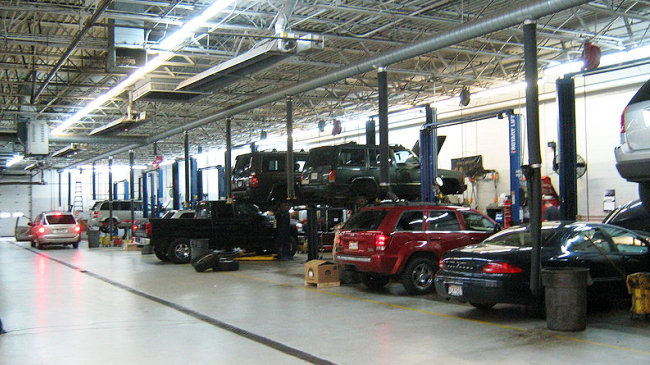This article first appeared in the Summer 2017 edition of the NMA Foundation’s Driving Freedoms Magazine. The NMA also gave an update in our Weekly Newsletter #470 dated January 15, 2018: Fight over Right to Repair will heat up in 2018. Please see the newest update below.
Yes and perhaps no. The more complex vehicles become, the more complex the proprietary software that runs the vehicle systems becomes. Since last October, the U.S. Copyright Office allows vehicle owners the right to modify mechanical systems and electronic controls–at least for now.
Automakers do not want car owners to be able to repair or tinker with their own vehicles and throw every hurdle at independent auto mechanics so they can’t either. This hurts the consumer’s pocketbook since the only auto mechanics that can repair new vehicles are at dealerships or at authorized repair shops which are always more expensive—especially if there is a monopoly. Protecting proprietary software would allow automakers to control their product from beginning to end.
A recent court case will perhaps change the tide on ownership and copyright laws.
In late May 2017, the U.S. Supreme Court reversed a lower court’s decision in Impression Products, Inc. v. Lexmark International Inc., affirming the right to own things you buy. Once a patent owner sells a product, the seller cannot claim later the product’s use after the sale is infringing. This prevents patent owners from controlling goods after sale and interfering with a person’s or a company’s right to resell, modify, and understand the things that are owned. The Court’s reasoning will help protect consumer rights from overbroad copyright laws and other restrictions like those written into end user license agreements for software or imposed technological restrictions as set out in Section 1201 of the 1998 Digital Millennium Copyright Act (DMCA).
The Supreme Court ruling also explained that people who buy things are allowed to use and resell them without being sued under patent and copyright law. This freedom is necessary for commerce to function. The Electronic Frontier Foundation (EFF) stated in their blog about the decision, “The next logical step will be for courts to recognize that people who buy digital goods are owners and not mere license holders and should have the freedom to resell, tinker with, and repair their digital goods to the same extent as purchasers of tangible property.” This, of course, should hopefully extend to vehicle owners.
The EFF, the Intellectual Property & Technology Law Clinic, and Repair.org are three groups that are fighting to preserve the notion of ownership. They believe that owners should have the right to investigate the code in their vehicles and to make modifications for better functionality along with having the ability to repair them without interference.
The right to repair (R2R) agreement with automakers will again be up for renegotiation in 2018. Additional court cases might also come about that could change this dynamic on a more permanent basis. The NMA will keep you posted on any updates on the right to repair.
December 2018 Update:
At the end of October, Motherboard.vice.com posted an article entitled: In Groundbreaking Decision, Feds say Hacking DRM to fix your Electronics is Legal. This is a major win for DIYers!
The US Copyright Office and the Librarian of Congress proposed new rules that will give wide latitude to legally hack embedded software on devices in order to repair or maintain the devices. These new rules apply to cars, smart home appliances, smartphones, tractors, and many more. Check out the proposed new rules HERE. For more information on what you can do to make sure everyone has the right to repair, check out the repair.org website.







